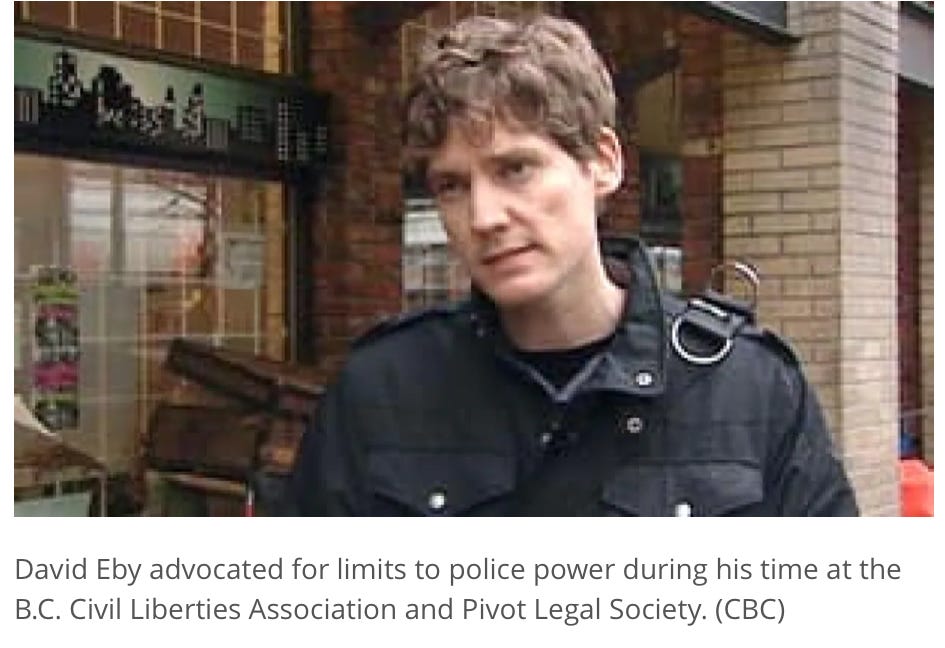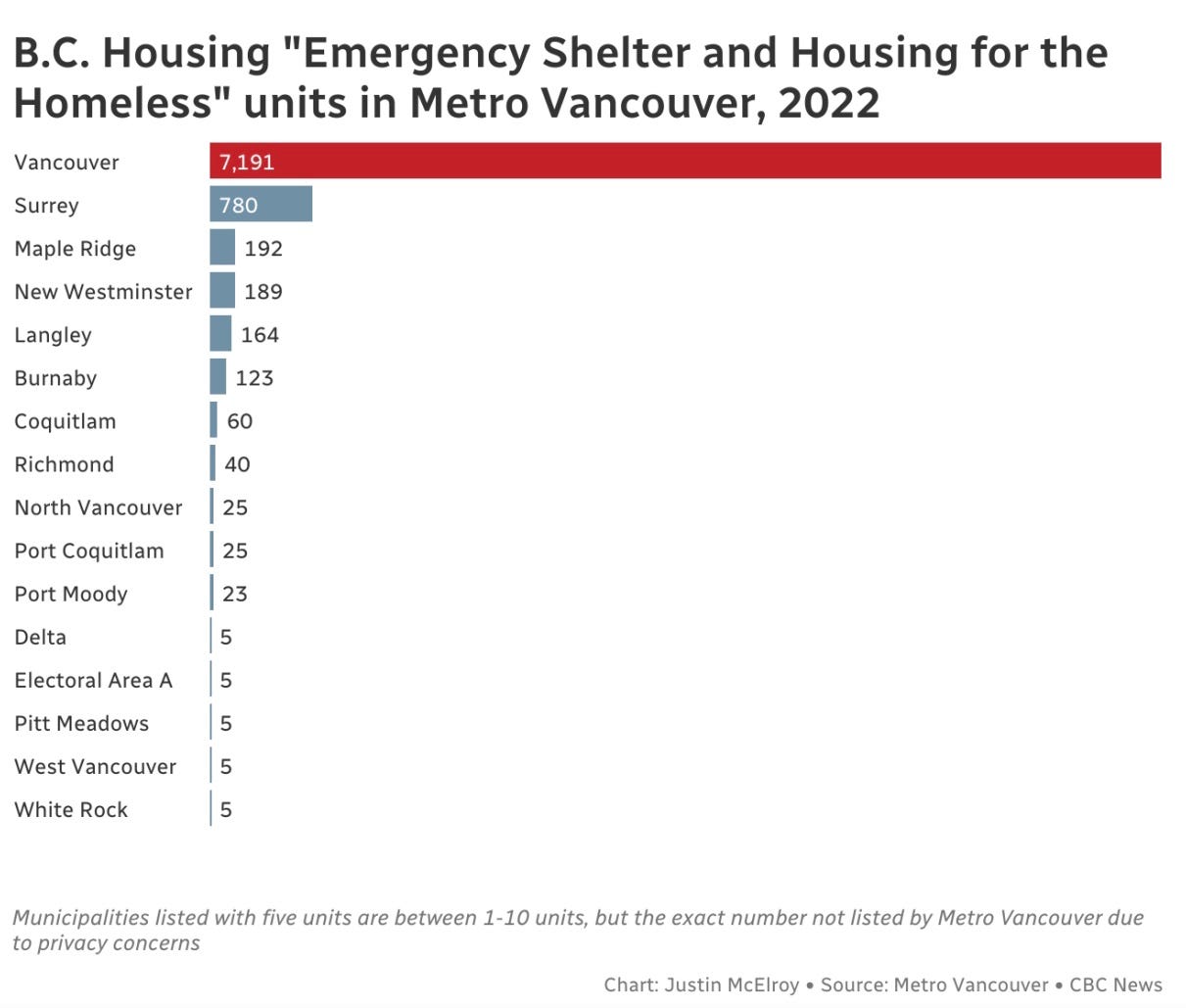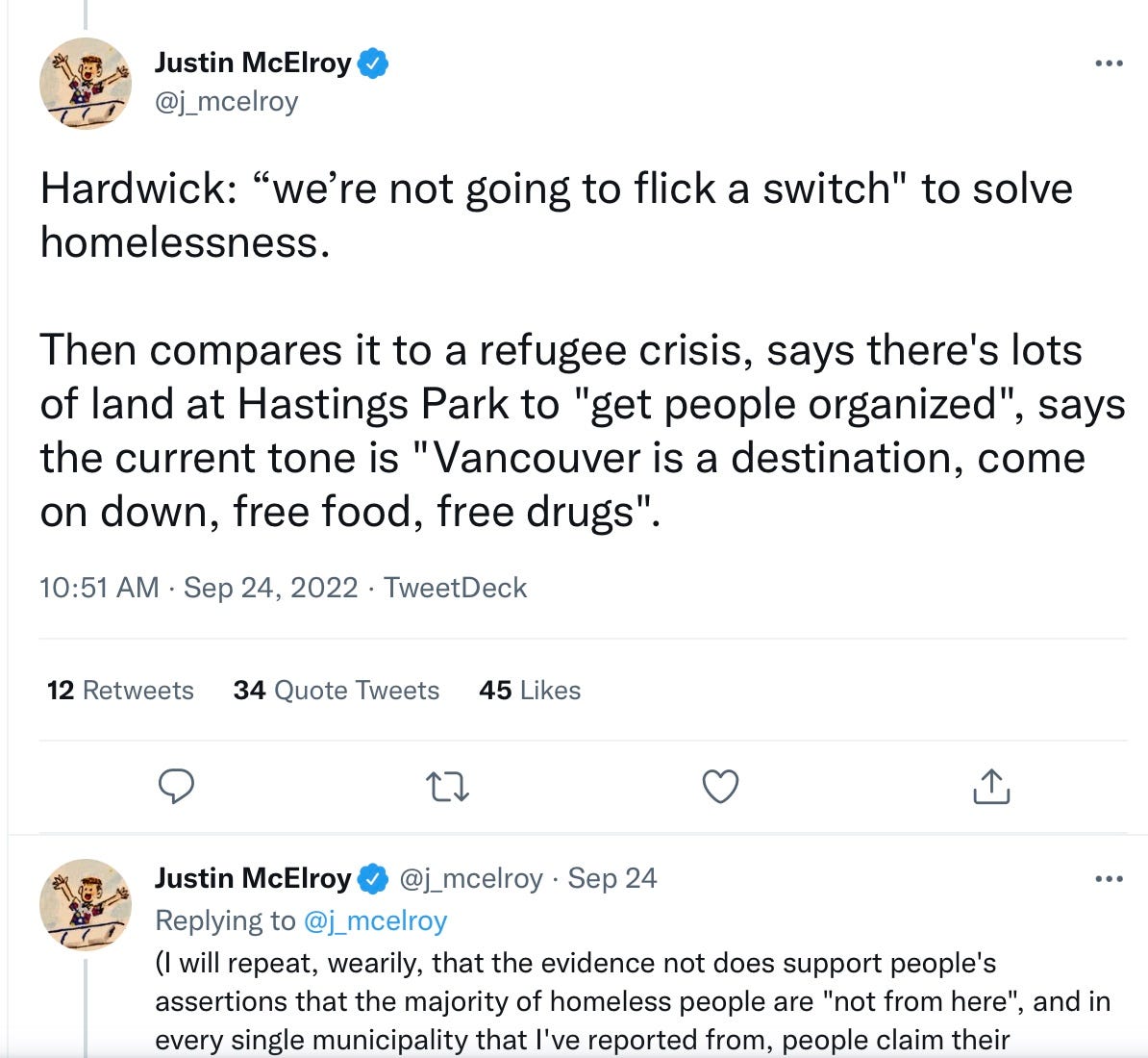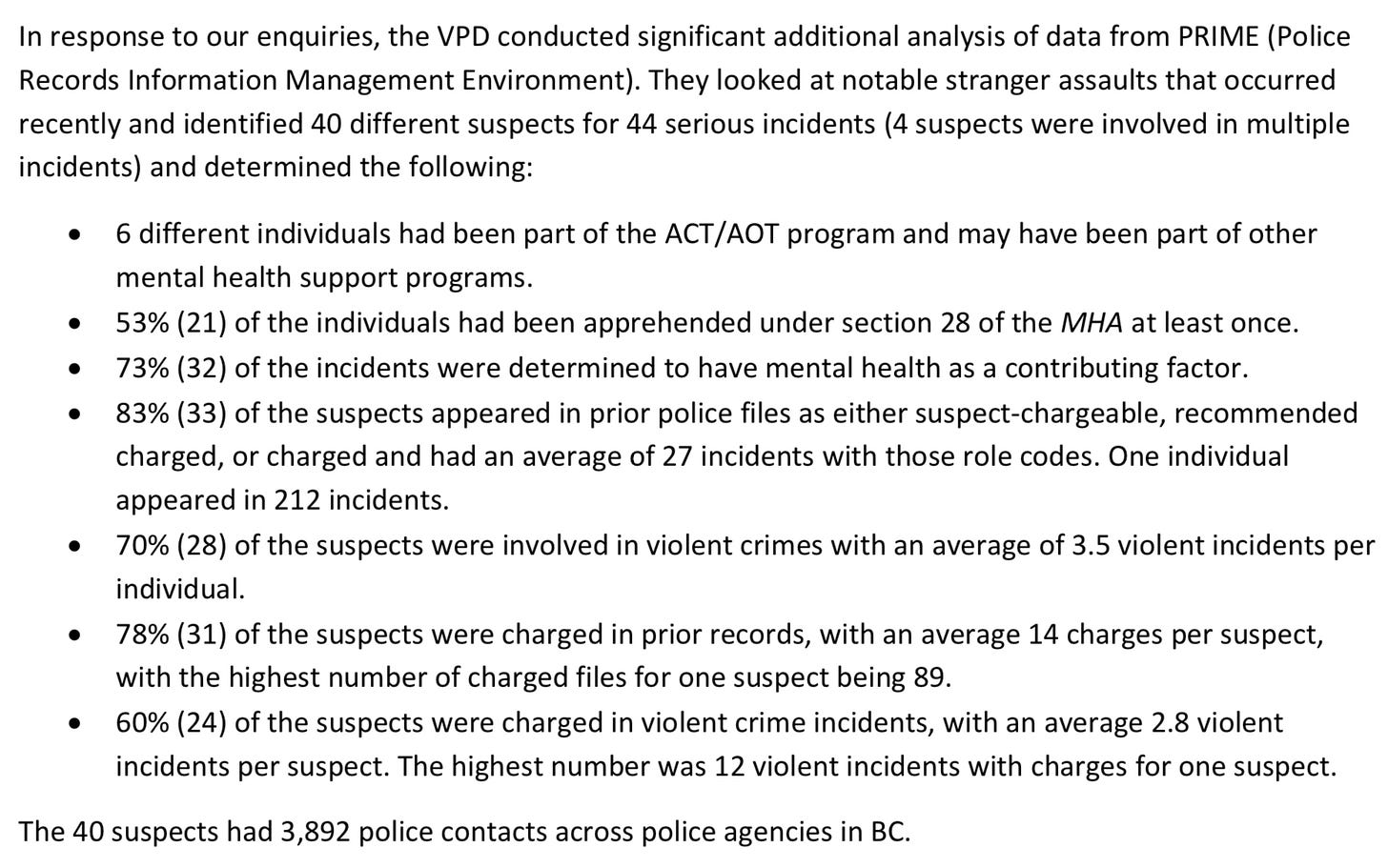David Eby - Saviour of the DTES? Chances Are It's About Status Quo and Control
Will David Eby move past his counterculture past and listen to reason? Or, will he spread the misery elsewhere and call the clean up of the DTES a resounding success?
Do you remember Kenneth Chan's article “Opinion: Vancouver is Canada’s dumping ground for the homeless, and this needs to stop?” A lot of the homeless are not from Metro Vancouver or even, BC, even though CBC’s Justin McElroy believes that they have endogenously sprouted from Vancouver.
Kenneth Chan went on to interview Dr. Julian Somers in 2020 before he became censored by the Safe Supply/ Warehouse Homeless in Towers movement, before David Eby brushed off his research in managing homelessness and addictions.
“The weather is better on the West Coast. The highest concentrations of homeless people in North American countries are in the warmer parts, so that’s Vancouver, Victoria, and Southern California,”
“In fact, based on the evidence from his research, when people come to Vancouver they get worse. They are more likely to engage in criminal activity, spend more time in corrections and hospitals, and remain homeless and unwell.”
“The services that are available in Vancouver are not effective, generally. I believe there is evidence that people move partly to find better services. But people who try that and move to Vancouver find that things here are not better,” said Somers.
“We need to not only look at the urban areas where visible homelessness is obvious, but we also need to use the information that is available to track where there is evidence of need outside of our urban settings, before the problems become more serious, and allocate similar types of approaches to areas in other parts of the country where there is an evidence of need.”
— Julian Somers, professor in the Faculty of Health Sciences at Simon Fraser University, in an interview with Daily Hive Urbanized.
Vancouver long has been a destination for those seeking a drug-using lifestyle, especially in the DTES, lovingly documented in the VANDU and PHS fan book by former Georgia Strait writer Travis Lupick "Fighting for Space: How a Group of Drug Users Transformed One City's Struggle with Addiction."
Now with outrageous behaviours and tent cities worse than ever, and embarrassment from the successful documentary "Vancouver is Dying" (still milder than "Seattle is Dying") David Eby says the province is going to take charge, because it's too much for the City of Vancouver (although he endorsed NDP cohort Kennedy Stewart for Mayor) and Ottawa is too far away.
LIKE A REFUGEE CRISIS
In August 2022, David Eby told Stephen Quinn from CBC that the province was going to take over the DTES. Quinn likened it to a refugee crisis, but didn't receive flack for stating that, only former Councillor and Mayoral candidate Colleen Hardwick.
Quinn also pointed out the activist aspect of the East Hastings encampments and Eby agreed. Here is the transcript.
Stephen Quinn apparently expressed concern about the DTES in another interview with former Mayor Kennedy Stewart in 2019. VANDU member Karen Ward told Quinn that "abnormal is the new normal."
RANDOM STREET VIOLENCE
Eby, the prolific commissioner of reports, commissioned one to provide "wraparound supports" and "destigmatization" of prolific offenders: A Rapid Investigation into Repeat Offending and Random Stranger Violence in British Columbia:
Page 119:
People with COD (complex co-occurring disorders) and justice system involvement face a “triple stigma” which produces barriers to employment, housing, and other social determinants of health.
Unfortunately, there was no review on the forensic records of the 40 prolific offenders, only opinions and literature reviews as to why such people could be so violent. And we don’t know where they came from.
For example, on page 119 of the report:
Methamphetamine use has increased disproportionately among people who experience incarceration – a recent study found that methamphetamine use disorder among people admitted to provincial correctional centres increased by 359% over a 9 year period.
Page 122:
Almost 20,000 people were involuntarily admitted under the MHA in BC in 2020, a number which has doubled in a 14-year period. The proportion of people who present to the hospital ED with substance use disorders (voluntarily and involuntarily) has increased dramatically.
The most relevant point in the report is the inadequate long-term resources for forensic psychiatry to follow up on these individuals (pages 127-128):
In the course of our research, we were exposed to cases that point out the contrast in the forensic and civil systems in BC regarding similar offenders who have committed similar violent acts while experiencing psychosis. The quality and type of care associated with civil and forensic care are very different, as are the expected outcomes.
For example, we reviewed a case of an offender with a history of serious mental illness and violent acts who was found NCRMD (Not Criminally Responsible on Account of Mental Disorder) and became subject to the forensic system. They stayed in hospital for several years receiving exceptional treatment and psychosocial counselling, but eventually when deemed ready was given increasing freedom, moved to designated supportive housing, and eventually placed in market housing in the community. They are subject to conditions to address their risk factors (such as a prohibition on using drugs and alcohol), remains under the jurisdiction of the BC Review Board, and can be immediately recalled to hospital should he decompensate. Further, many individuals found NCRMD respond so well to treatment that they are eventually discharged without conditions.
Yet in a recent case of another person who also had a history of psychosis – exacerbated by frequent use of street drugs – they were apprehended and certified under the MHA after assaulting an elderly woman, breaking her leg. This individual remains on extended leave in the community but has no conditions other than to appear for a monthly antipsychotic injection, which has reduced their propensity for violence. However, they continue to use methamphetamine regularly, making it more difficult to treat their psychosis and in fact exacerbating it to the point it is “treatment resistant.” We also heard anecdotes from several stakeholders about the problem of such certified patients missing appointments for their antipsychotic medication but rather than being recalled under the MHA, their certification is simply allowed to expire, leaving them untreated in the community, until they decompensate to the point of crisis and again come to the attention of police.
In contrast to the recent articles on catch and release of criminals, media switched over to “Could David Eby be tough?”
David Eby just announced on Nov 20th his repeat offender response team plan.
A reactive and NOT proactive plan, liking the number 21, with NOTHING about expanding services in forensic psychiatry.
Nothing about preventing violent offenders from migrating to Vancouver and especially to the DTES.
From Global news:
The teams will consist of police officers, 21 dedicated prosecutors, 21 probation officers, 21 support personnel and nine correctional supervisors.
Responsibilities will include monitoring high-risk repeat offender cases through the criminal justice system, conducting investigations and sharing information to keep repeat violent offenders in custody before trial.
Simultaneous to this announcement, Café du Soleil on Commercial Drive was subjected to armed robbery.
From the Stephen Quinn interview:
I think it's the province that needs to step up and take accountability and responsibility for the neighbourhood.
-David Eby
Maybe. But with scandals involving BC Housing, Atira and many BC government-owned properties in the DTES, maybe David Eby wants to assert provincial authority over DTES, take charge of the City and bury some things before the new Council finds them.







